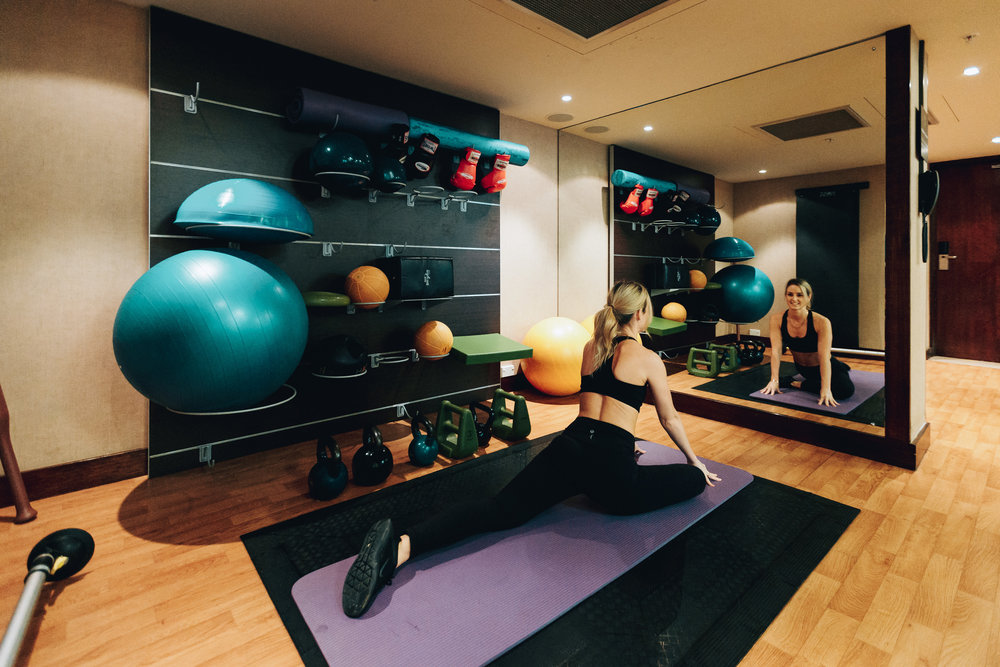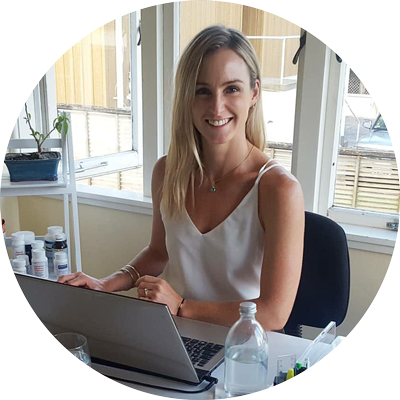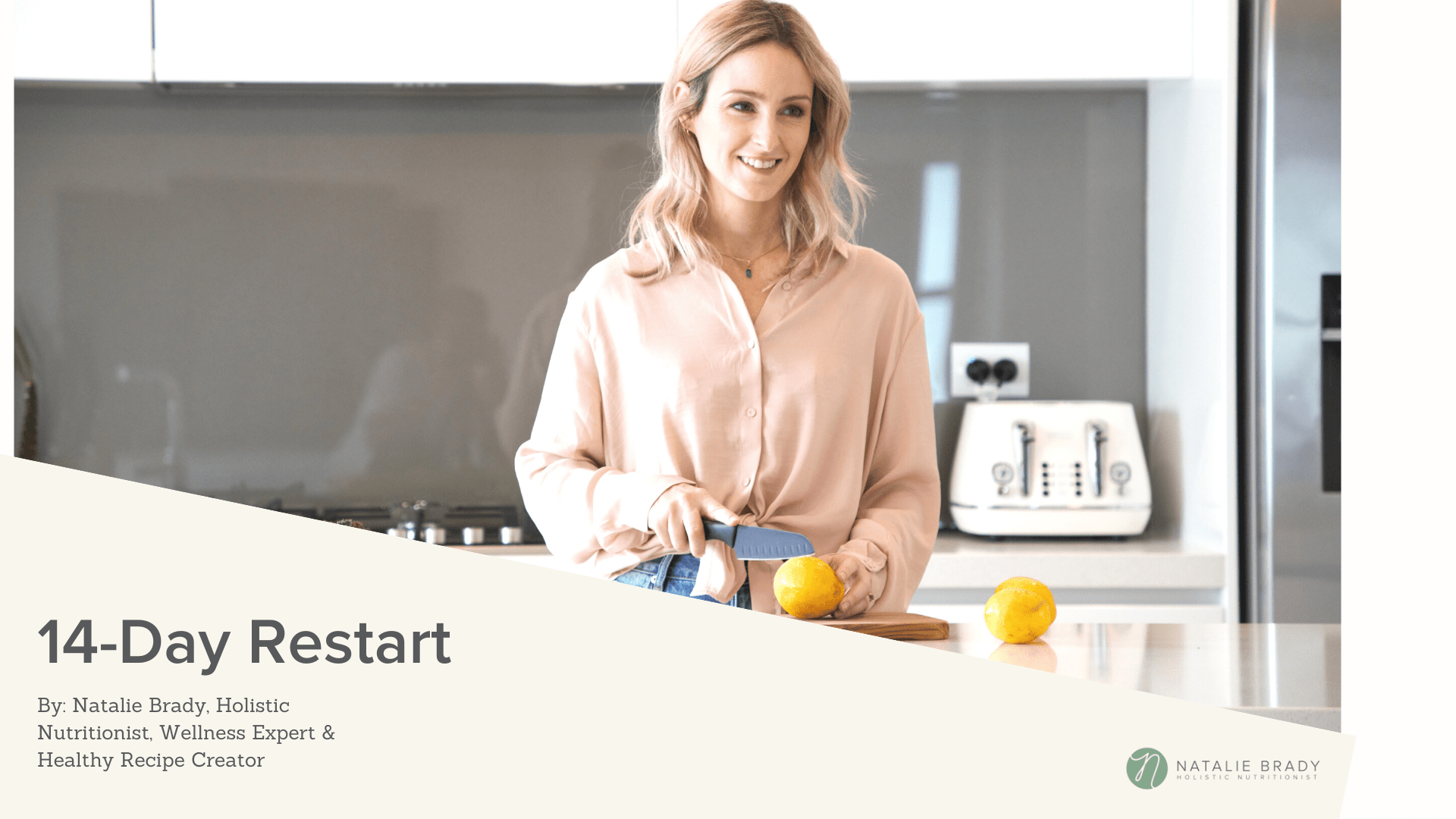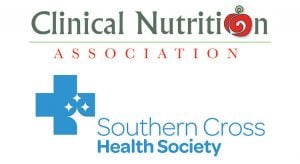4 Lifestyle Changes To Make If You Want To Balance Your Hormones

Balancing hormones can be a juggling act! I know first hand what it’s like to have a hormonal imbalance. A few years ago after struggling with amenorrhea I was then diagnosed with PCOS. After finding out about my diagnoses I made a lot of diet and lifestyle changes to help bring back my cycle and balance my hormones. I’ve seen a lot of clients recently who have been struggling with similar issues so I decided to share with you a few of the lifestyle changes I made over that time to support and balance my hormones.
Here are 4 lifestyle changes to make if you want to balance your hormones:
1. Do not over exercise
I’ll be the first to put my hand up and say I’m guilty of this. I love exercise, I love the way it makes me feel, there’s nothing quite like that endorphin hit post HIIT or gym session. However, if you’ve lost your period or have a hormonal imbalance (much like I did) over exercising is one of the worst things you can do to regulate your cycle. HIIT and long intense gym sessions actually stresses the body, doing your more harm than good. It increases your stress hormones which is something we are trying to decrease.
What to do: Focus on more restorative exercise such as yoga, walking, pilates and ensure you have 1 or two 2 complete rest days. It’s also best to limit your exercise session to 30-45 minutes (including warm up and cool down), particularly if you’ve lost your cycle. It can be mentally challenging, I personally struggled to cut back on exercise, it probably took me about 6 months to be able to tell myself it’s “okay” to just walk and do yoga for 30-45 minutes 4-5x per week. You have to figure out what is more important to you, balanced hormones and having a regular menstrual cycle so you can have a baby one day and ensure you ovulate for good health, or aesthetically looking good and being “fit and toned”. To me, I wanted to have balanced hormones, healthy progesterone levels to help reduce anxiety and to be able to have a baby one day so when I kept thinking of that it got me over the hurdle of having to be the fittest, strongest person at the gym.
2. Reduce stress
This is a biggie! Stress in whatever form, over exercising, not sleeping enough, under-eating, restricting foods, internal stress from worry/self-doubt, is going to cause hormonal havoc. When you are stressed and in the ‘fight or flight’ response your body isn’t worried about making a baby and holding onto a baby, as it thinks it’s not a safe environment to bring a baby into the world, this is when periods can stop, as your brain isn’t going to signal your ovaries to release an egg in an “unsafe” environment. It thinks it need to run from a saber tooth tiger to save your life. Until you slow down, stop, breathe and de-stress your hormones are going to be having a party inside you.I can’t emphasize this one enough! We all lead such busy lives these days, and being able to recognize this, slow down and change your lifestyle so your body doesn’t think it’s in perceived danger 24/7 could be one of the most life changing factors to help balance your hormones. This is why I emphasise the importance of doing a mindfulness practice daily to my clients, and myself! Being “busy” is personally my biggest down fall, I like to do it all and please everyone and run around at a million miles an hour, but I know this wreaks havoc on my body and mind sending my hormones into overdrive.
What I recommend: Incorporate a mindfulness practice into your lifestyle daily, I personally like to put my legs up against the wall for 15 minutes daily (or most days), this is one of the best ways to restore and relax the nervous system. Other options include diaphragmatic breathing (aka belly breathing), journaling, meditating, listening to soothing or guided meditation music (which is what I do with my legs up the wall). There are many great meditation apps out there at the moment also such as Insight Timer, Headspace and Calm, you can start off with 3 minute meditations and work your way up to 10-15 minutes if this is something new to you.
3. Do not under eat and/or restrict food groups eating
This is very common, and is something I come across in clinic all the time. You could be eating the healthiest diet but restricting carbs, protein or fat just a little too much. Add 5-6 60+ minute exercise session on top of under eating and your sending your body straight into a stress response. This signals your brain to think it’s in famine, it’ll then start to store food to use “later” (stored as fat cells) and it if this goes on for a long period of time your brain can start to switch of its signal to your ovaries to ovulate. As mentioned above, your body doesn’t think it’s in a safe environment to bring a baby into the world as it’s under nourished and under “perceived stress”.Our bodies need adequate nutrition for hormonal balance, we need healthy fats in our diet to support and produce hormones, we need protein to build and repair cells and make other proteins that may function as hormones or enzymes. In some conditions such as PCOS it can be beneficial to limit carbohydrate intake as this is often a condition related to insulin sensitivity and/or insulin resistance, but you first need to work with a qualified health care practitioner to determine which type of PCOS you have, as there are 4 different types. For example, I have PCOS and my body response very well to carbohydrates, I don’t overdo it but I do need to have at least two servings of complex carbs a day (oats, brown rice, quinoa, kumara, potatoes) to support my body’s requirements.
What I recommend: Don’t resist your food, yes it’s good to limit your intake of refined and processed foods but don’t restrict the good stuff too much. Eat unlimited amounts of non-starchy veggies, have one good quality protein source with each meal and snack, have one healthy fat source with each meal and snack, enjoy some fruit and complex carbohydrates (just don’t overdo it), and limit/avoid it if you are insulin sensitive, or get in touch with a holistic health care practitioner who can guide you on the best food recommendations for you. Also don’t forget to treat yourself 2-3 times each week with whatever food you absolutely love (pizza, burger, pasta, ice-cream, chocolate, donuts), the enjoyment of these foods creates happy hormones in your body which are so important for hormonal health and our moods.
4. Do not skimp on sleep
I’ve said it before and I’ll say it again, getting adequate sleep to me is the foundation to good health. When we sleep all sorts of regenerative processes happen within the body, your cells are able to repair and renew themselves. Getting 6 hours or less of sleep a night is often not enough for the body to rest, repair and renew itself. For most people our bodies need at least 7-8 (more 8-9 from my personal exercise when trying to balance my hormones) to rest, repair and renew itself. Lack of sleep actually increases our bodies stress response. Hormones are never going to be balanced if we are constantly stressed and not allowing our bodies to rest.What I recommend: Aim to get a minimum of 8 hours of sleep each night. Incorporate a relaxing evening ritual into your lifestyle, and set the tone 1 hour before bed (dark room, away from technology) to let your body prepare for a nice restful and deep night’s sleep.
If you found this interesting or would like to know more about how I balanced my hormones and bought back my period let me know if the comments below.

Hi I’m Natalie, a Registered Clinical Nutritionist, health influencer, blog writer & recipe creator. My own health complications prompted me to make positive diet & lifestyle changes, revitalize my health leading to a career change from the corporate world to nutritional medicine. I believe in a wholefoods approach to good health, focusing on simple strategies for modern, busy people.
Let's connect @nataliebradynutrition
The information on this website is not intended to replace the advice of your GP, a one on one relationship with a qualified health care professional and is not intended as medical advice. It is not intended for self-diagnosis, treat, cure, or prevent any disease. I encourage you to make your own health care decisions based upon research and in partnership with a qualified healthcare professional. The entire content of this website is based on the opinions of Natalie Brady, a qualified Holistic Nutritionist, unless otherwise noted. Click here for term and conditions of services.
Copyright © Natalie Brady Nutrition 2022 | Natalie Brady Nutrition Listed in Auckland's Top Nutritionists | Website by Fuel Media



